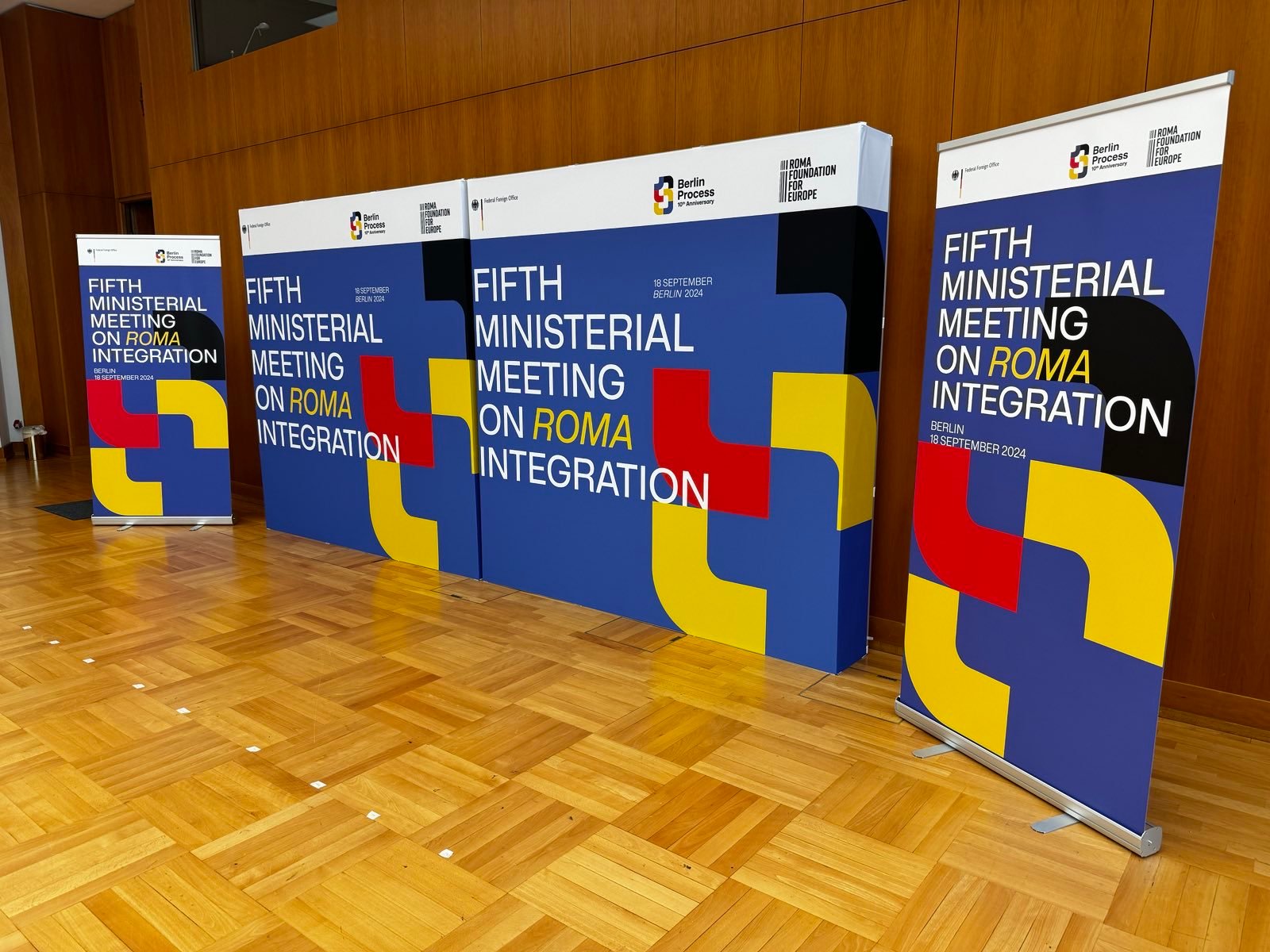Participants at the Ministerial Meeting on Roma Integration ahead of the tenth anniversary of the Berlin Process call for concrete steps to improve the situation of Roma in the Western Balkans and tap into their economic potential.
BERLIN: Ministers have called for stronger commitments to improve Roma integration across the Western Balkans by means of improving housing conditions, offering skills training and addressing anti-Gypsyism at the Fifth Ministerial Meeting on Roma Integration hosted by the German Federal Foreign Ministry in Berlin and attended by representatives of the Western Balkan countries and the European Union.
Implementation of these commitments, as defined in the Declaration of Western Balkans Partners on Roma Integration within the EU Enlargement Process (Poznan Declaration), are meant to contribute to progress on the Western Balkan countries' European path and will be sent for formal adoption to the October Berlin Process Summit. The high-level meeting highlighted progress made so far as part of the Berlin Process which aims to support the Western Balkans' integration efforts while acknowledging the significant barriers that remain for Roma communities, who continue to face widespread social and economic exclusion.
It was noted that progress has been made in areas of education, access to health and civil registration. For example, the completion rate of Roma schoolchildren has increased, while dropouts have decreased. In addition, health insurance coverage has been extended and cases of undocumented Roma been resolved. However, challenges remain around informal employment and lack of jobs, access to property documents and addressing anti-Gypsyism.
Anna Lührmann, Minister of State at the Federal Foreign Office of Germany, echoed the need for action: "The integration of Sinti and Roma in the Western Balkans remains a priority for us. With the Berlin Process, we have placed them at the centre of our EU enlargement efforts. Today's ministerial meeting is important to emphasise the progress made in the lives of Sinti and Roma in the Western Balkans. But we must not stop now: Good education is the key to a better future. It opens up individual opportunities and paves the way for an economically successful and sustainable future. Education and sustainability go hand in hand to create prosperity for all population groups in the Western Balkans."
Zeljko Jovanovic, President of the Roma Foundation for Europe, stated: “Roma integration is a public investment that benefits all. It’s time to fully unlock their potential to contribute to the region's growth. The Ministerial Meeting is an important reminder that Roma progress belongs high on the political agenda of Europe.”
He added, “Roma workers can help overcome the shortage of qualified labour. Investments in training programs to equip Roma youth with the skills needed by the labour market can recoup costs and begin to yield returns in less than three years. Between 14% and 29% of all new labour market entrants in Serbia alone will be Roma by 2035. Now is the time to invest, as funding is available and public support is strong.”
The key commitments include:
- Enhancing employment opportunities for Roma, especially young people, through targeted skills training aligned with green and digital transitions.
- Using new financing instruments, such as the Reform and Growth Facility, to improve Roma housing conditions, focusing on access to essential public services.
- Increasing education quality in Roma neighbourhoods and ensuring full access to mainstream education for all Roma children.
- Strengthening healthcare access for Roma, including undocumented individuals, and promoting scholarships for Roma medical professionals.
- Combating anti-Gypsyism through education and a multi-disciplinary approach led by the European Roma Institute for Arts and Culture (ERIAC), ensuring Roma history and culture are properly represented in curricula across the region.
The next Ministerial Meeting will take place in 2025 to review progress toward the targets of the Poznan Declaration.

Roma Foundation for Europe
The latest

Serbia Must Amend Missing Persons Alert System to Protect Vulnerable Adults

Constitutional Review of the Šutar Law Confirms Serious Rule-of-Law Concerns

Europe’s Growth Depends on Roma Talent
Browse by category
Campaigns
Events
Facts
Press
Voices
For media inquiries:
[email protected]Sign up here so you don’t miss out on campaign updates, upcoming events and other news from the Roma Foundation for Europe and our network.
Sign up for our newsletter